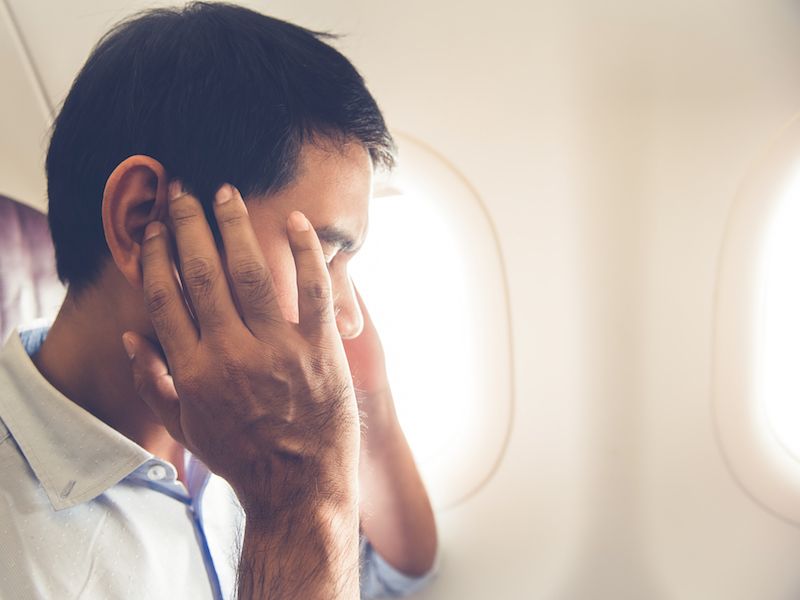
You have good days, and you have bad days, that’s par for the course for individuals who have tinnitus but why? Tinnitus is the medical name for ringing in the ears, a condition more than 45 million Americans experience, according to the American Tinnitus Association, and 90 percent of them also have some degree of hearing loss.
None of that explains why the ringing is intrusive some days and almost non-existent on others. Some normal triggers may explain it but it’s still unclear as to why this occurs.
What Is Tinnitus?
Tinnitus describes a condition where the patient hears phantom noises such as:
- Buzzing
- Ringing
- Hissing
- Clicking
- Roaring
You hear it, the guy sitting next to you doesn’t, which is part of what makes tinnitus so disturbing. The noise can vary in pitch and volume, too. One day it might be a roar and the next day be gone completely.
What is The Cause of Tinnitus?
Changes in a person’s hearing are the most common cause. The cause of these changes could be:
- Aging
- Noise trauma
- Earwax build up
- Ear bone changes
A few other potential causes include:
- A problem with the carotid artery or jugular vein
- Tumor in the neck or head
- Acoustic neuroma
- Atherosclerosis
- Head trauma
- High blood pressure
- Meniere’s disease
- TMJ issues
Sometimes there is no apparent reason for tinnitus.
Consult your doctor to have your ears tested if you suddenly notice the symptoms of tinnitus. The problem may be something treatable or even a symptom of a life-threatening condition like high blood pressure or heart disease. A side effect of a new medication could also be the cause.
For some reason the ringing gets worse on some days.
It’s a bit of a medical mystery as to why certain days are worse than others for those who have tinnitus. The reason may be different for each person, too. However, there might be some common triggers.
Loud Events
Loud events such as concerts, club music, and fireworks are enough to aggravate your tinnitus. If you expect to be subjected to loud noise, your best choice is to wear ear protection. They make earplugs, for instance, that will allow you to enjoy music at a concert but reduce the effect it has on your hearing.
Another thing you can do is to put some distance between you and the source of the noise. When you attend a fireworks display don’t sit up front and stay away from the front row when you’re at a concert. With this and hearing protection, the damage to your ears will be reduced.
Loud Noises at Home
Things around the house can be just as harmful as a loud concert. For instance, mowing the lawn is enough to induce tinnitus. Think about other things you do at home that may be a problem:
- Laundry – For instance, if you fold clothes while the washer is running.
- Woodworking – Power tools are loud enough to be an issue.
- Wearing headphones – It might be time to lose the earbuds or headphones. Their function is to increase the volume, and that might be aggravating your ears.
If you can’t stay away from loud noises at least wear hearing protection.
Workplace Noise
Loud noises on the job have the same effect as a concert or the lawnmower. It’s especially crucial to use ear protection if you work in construction or are around machines. Talk to your manager about your ear health; they might supply the hearing protection you need. Spend your off time letting your ears rest, too.
Air Pressure Changes
Many people have experienced ear popping when they fly. The shift in air pressure plus the noise from the plane engines can lead to an increase in tinnitus. If you are traveling, take some gum with you to help neutralize the air pressure and consider hearing protection.
Changes in air pressure occur everywhere not only on a plane. Taking the proper medication to relieve sinus pressure is also helpful.
Medication
Speaking of medication, that could also be the issue. Certain drugs affect the ears and are known as ototoxic. Some prevalent medications on the list include:
- Diuretics
- Over-the-counter pain relievers
- Antibiotics
Talk to your doctor if you experience an intensifying of tinnitus after you start taking a new prescription. It might be feasible to change to something else.
Tinnitus is an irritation for some people, but for others, it can be debilitating. To be able to determine how to control it from day to day, the first step is to find out what’s causing it.